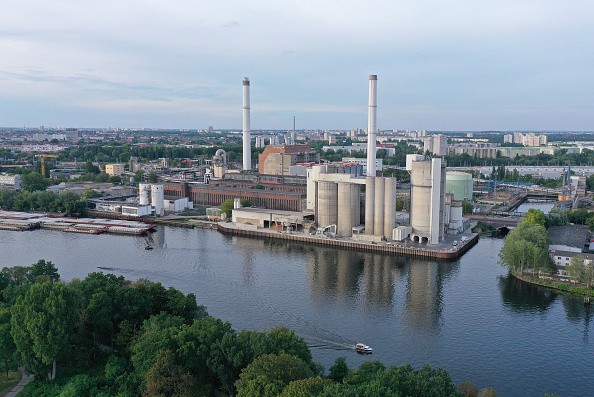Geothermal technologies for green air conditioning have recently been reviewed by scientists from Italy and India.
This development will increase air conditioning's reusability and sustainability.
The article has been released in the magazine Energies.
Using Geothermal Systems to Reduce the Environmental Cost of Air Conditioning
 (Photo : Sean Gallup/Getty Images)
(Photo : Sean Gallup/Getty Images)

Globally, air conditioning is frequently used to keep indoor temperatures at a suitable level in residential and business settings, as per AZO Materials
In buildings worldwide, air conditioning accounts for around one-fifth of the total energy demand.
Globally, different amounts of energy are consumed by air conditioning.
For instance, although this percentage is about 14 percent in the USA, it is around 40 percent in Mumbai, India.
Demand is expected to grow thirteen times between 2000 and 2050, according to the High-Level Board on Climate Change, and thirty times by 2100.
These forecasts demonstrate that the tendency toward air conditioning will only continue to grow in the future, and it is vital to reduce the sector's environmental impact.
The air conditioning sector is a significant contributor to world energy consumption and a major cause of climate change.
Significant opportunity exists to lower the energy requirements for air conditioning technology and, as a result, the overall energy demands.
Additionally, adopting creative ideas in the field will aid in lowering the significant emissions generated by the world's energy sector.
Complex issues plague the world's air conditioning business.
The most pressing of these issues is global warming, which is causing more and more nations to struggle with rising temperatures and accelerating the demand for air conditioning.
Future generations could be threatened by the potential vicious cycle this produces.
Energy consumption and emissions will continue to rise exponentially in the absence of technological innovation, new strategies, and laws, endangering the global effort to achieve net zero carbon and sustainability.
The study has suggested a thorough and critical analysis of the field to evaluate the potential advantages geothermal energy can bring to the air conditioning and HVAC business.
The widespread usage of this renewable energy source in Iceland, where geothermal energy meets almost all of the country's energy needs, demonstrates the enormous potential for its application.
Geothermal energy sources have the potential to dramatically increase sustainability, the carbon footprint of the industry, and the energy efficiency of HVAC systems without compromising system performance.
Alternative solutions have been suggested to lessen the need for refrigerants, which can further affect the environment by depleting ozone.
Read More: Wasted Heat from Air Conditioners Raises Temperatures at Night in Urban Areas
Advantages of Geothermal Energy
One of the most favorable energy sources at the moment is thought to be geothermal energy.
It is not only a renewable source of energy, but it is also widespread and outperforms even certain conventional sources in many ways, as per Green Match
Particularly when compared to other energy sources, geothermal energy offers many benefits.
First and foremost, geothermal fields generate almost no emissions and geothermal energy is collected from the earth without using fossil fuels.
Geothermal energy can also be quite advantageous because it can result in savings of up to 80% compared to traditional energy use.
Geothermal energy sources are environment-friendly.
With their adaptable architecture, geothermal heat pump systems can be adjusted to varied scenarios and consume 25 to 50 percent less energy than traditional systems for heating or cooling.
They also take up less room in terms of hardware than conventional systems.
The lifespan of geothermal heat pump systems is comparatively high because they only have a small number of moveable elements that are protected inside a building.
While the pump may typically survive for at least 20 years, heat pump pipes even come with warranties ranging from 25 to 50 years.
When compared to other renewable energy sources like solar, wind, or biomass, geothermal energy has several advantages as well.
It is a particularly reliable source of energy because it is available all year round and is not reliant on the sun or wind.
Related Article: Here's Why Chevron and BP Are Investing in Geothermal Energy
© 2024 NatureWorldNews.com All rights reserved. Do not reproduce without permission.
* This is a contributed article and this content does not necessarily represent the views of natureworldnews.com



![Climate Change is Reducing Dust Levels Worldwide as Arctic Temperature Warms [Study]](https://1471793142.rsc.cdn77.org/data/thumbs/full/70320/280/157/50/40/climate-change-is-reducing-dust-levels-worldwide-as-arctic-temperature-warms-study.jpg)

